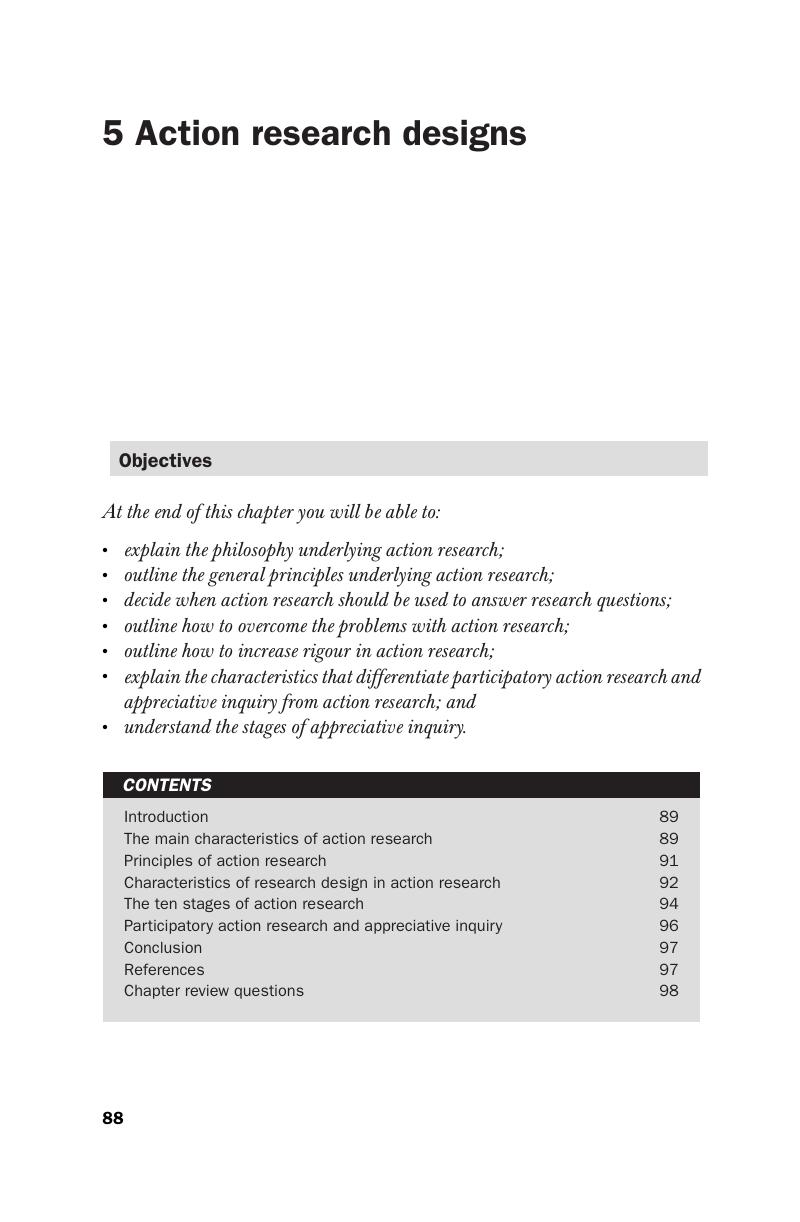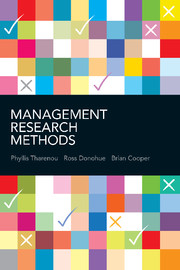Book contents
- Frontmatter
- Contents
- Preface
- Part 1 Introduction
- Part 2 Research designs
- 2 Experimental and quasi-experimental designs
- 3 Correlational field study (survey) designs
- 4 Case study research designs
- 5 Action research designs
- Part 3 Methods of data collection
- Part 4 Measurement
- Part 5 Methods of data analysis
- Part 6 Reporting research findings and ethical considerations
- Index
- References
5 - Action research designs
Published online by Cambridge University Press: 05 June 2012
- Frontmatter
- Contents
- Preface
- Part 1 Introduction
- Part 2 Research designs
- 2 Experimental and quasi-experimental designs
- 3 Correlational field study (survey) designs
- 4 Case study research designs
- 5 Action research designs
- Part 3 Methods of data collection
- Part 4 Measurement
- Part 5 Methods of data analysis
- Part 6 Reporting research findings and ethical considerations
- Index
- References
Summary

- Type
- Chapter
- Information
- Management Research Methods , pp. 88 - 98Publisher: Cambridge University PressPrint publication year: 2007

